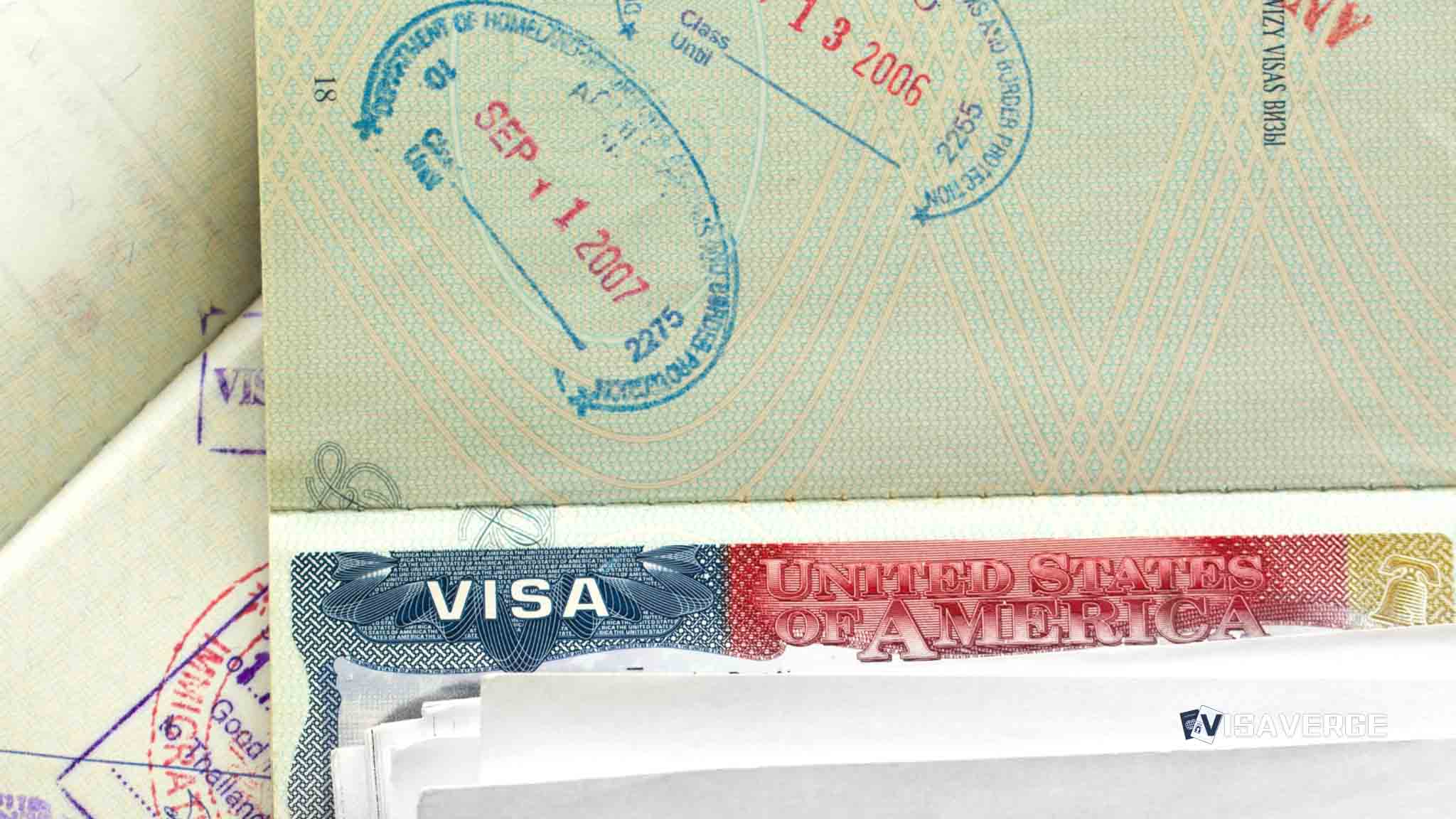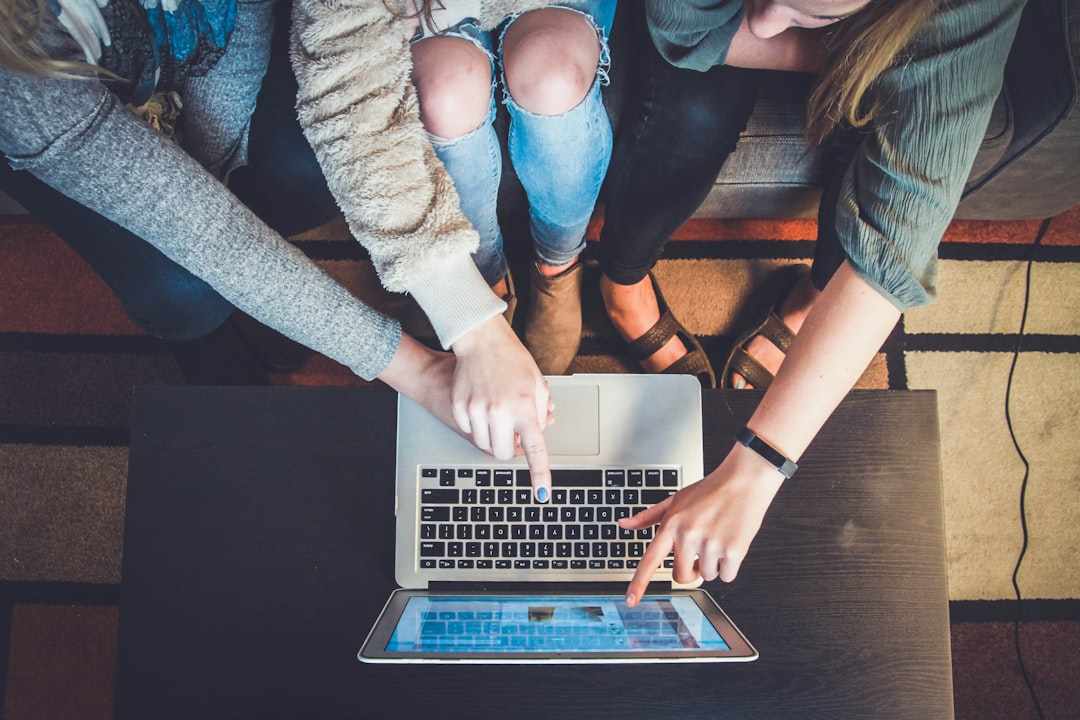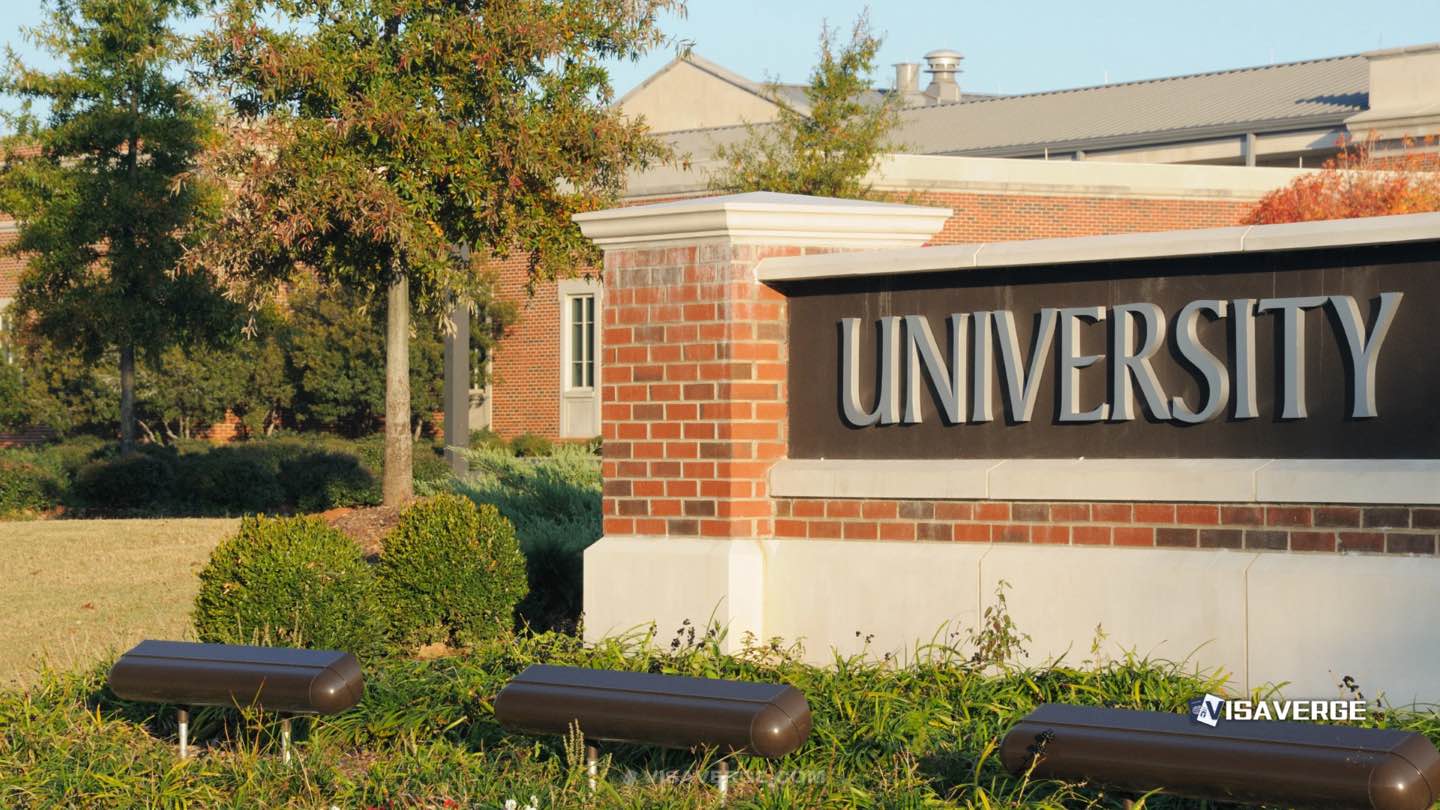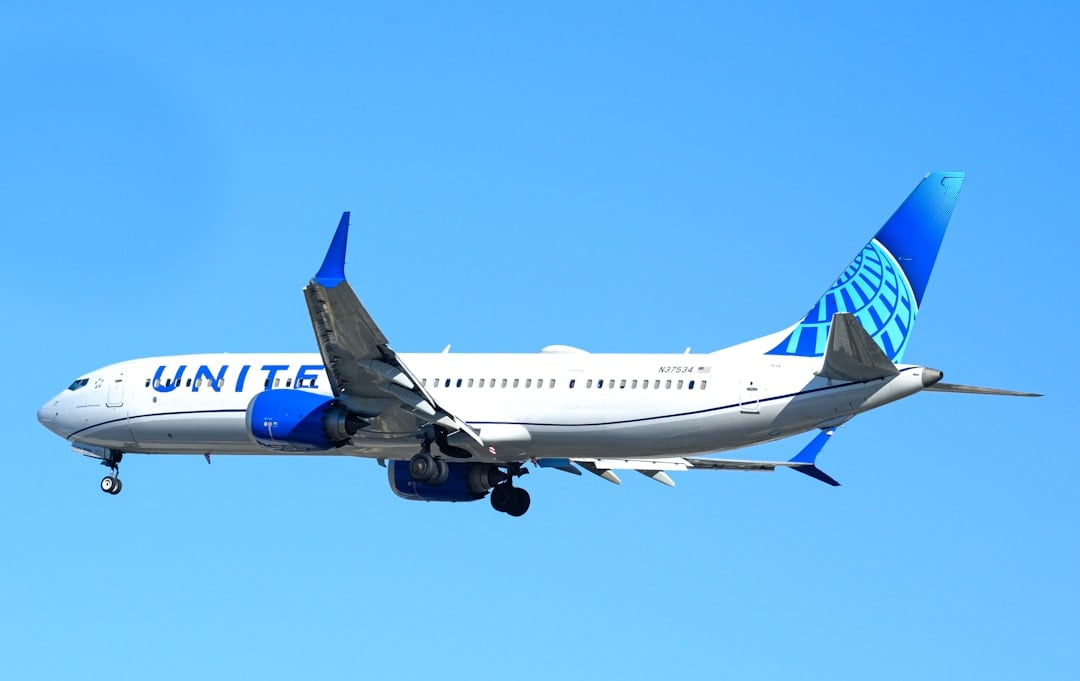Understanding the I-864 Affidavit of Support
Before delving into whether embassies accept a scanned I-864 form, it’s important to understand what this document represents. The I-864 Affidavit of Support is a critical piece of documentation often required during the visa application process. It serves as a formal pledge from a sponsor (usually a family member or employer) in the United States, asserting that they will financially support the visa applicant. This is to ensure that the individual will not become a public charge, reliant on government assistance, once they are in the country.

The Weight of the I-864 Affidavit During the Visa Interview
The visa interview is the climactic point in the visa application process when a consulate officer assesses the applicant’s eligibility. Part of this assessment includes reviewing the I-864 Affidavit of Support to ascertain the financial stability and commitment of the sponsor.
The Acceptance of Scanned I-864 Forms at Embassies
In today’s digital world, the ease of sharing and receiving documents electronically is unparalleled. However, when it comes to legal documents and formal processes like immigration, it’s imperative to adhere to the specific requirements set by the authorities.
A common question that arises is whether embassies accept a scanned, signed I-864 Affidavit of Support for a visa interview. The answer depends on the specific embassy or consulate’s policy. While some embassies might accept a scanned and signed copy during the initial stages of the application process, for the final visa interview, they typically require the original document or a certified copy to ensure authenticity.
To verify what’s accepted, applicants should check the website of the embassy or consulate where they will have their interview. Moreover, they can also refer to the United States Citizenship and Immigration Services (USCIS) or the Department of State for official guidelines.
Why Original or Certified Copies Are Often Required
The reasoning behind requiring an original or certified copy of the I-864 Affidavit of Support is to prevent fraud and ensure that the document is legally binding. A physical signature carries more weight in terms of legal validity and is harder to forge than a digital one. Therefore, many embassies enforce strict rules regarding these documents to maintain the integrity of the immigration process.
Best Practices for Submitting the I-864 Affidavit of Support
Here’s what you need to know when preparing your I-864 Affidavit of Support for your upcoming visa interview:
- Always Consult the Embassy: Before attending your visa interview, it is essential to check the specific requirements of the embassy or consulate you are dealing with. This information can usually be found on their official website.
- Prepare the Original Document: If a scanned copy is not acceptable, ensure you have the original document or a certified copy ready for your interview.
- Keep the Document Intact: Do not alter or damage the original document in any way, as this can lead to complications or even rejection.
- Understand the Sponsor’s Responsibilities: Both the applicant and the sponsor should have a clear understanding of the obligations that come with signing the I-864 Affidavit.
Verifying the Authenticity of Your Documentation
For added certainty, prospective immigrants can engage with professionals specializing in immigration law who can provide guidance on document preparation and submission. They may also offer services to help verify the authenticity of such documents before the visa interview.
Conclusion
While the convenience of scanned documents cannot be denied, the I-864 Affidavit of Support is a document that typically calls for extra scrutiny, given its significance in the visa application process. The best approach is one that combines diligence with adherence to the specific guidelines of the involved immigration authorities. This careful approach will minimize the risk of unexpected setbacks during the visa interview.
To ensure the accuracy of this information, always refer to the most recent instructions provided by the USCIS or your local embassy or consulate. Doing so will help make your journey toward a successful visa application as smooth as possible.
Still Got Questions? Read Below to Know More
What should I do if my sponsor’s physical signature on the I-864 form got smudged, is it still valid for the embassy?
If your sponsor’s physical signature on the I-864 (Affidavit of Support) form got smudged, it’s essential to ensure the document remains legible and the smudging does not obscure the signature in a way that could raise questions about its authenticity. If the signature is still recognizable and the form can be read without issue, the embassy might accept it. However, it is always best to avoid any potential processing delays or complications due to questions about the document’s validity.
In many cases, it’s recommended to take one of the following steps to ensure that the form is acceptable:
- Contact the National Visa Center (NVC) or the Embassy: Prior to your interview, you could seek guidance from the NVC or the embassy/consulate where the interview will take place. Explain the situation and ask if a smudged signature would be an issue. They might provide specific instructions tailored to your situation.
- Resubmit a new form: If the smudging significantly impacts the readability of the signature, your safest option is to have your sponsor fill out a new I-864 form and sign it again to ensure clarity.
Keep in mind that the I-864 form is a legally binding contract between the sponsor and the U.S. government. Thus, clarity, legibility, and accuracy of all information are critical. You can download a fresh I-864 form from the USCIS website at I-864, Affidavit of Support Under Section 213A of the INA.
Lastly, please remember to adhere to the most current guidance and check for any updates on the USCIS official website or consult with an immigration attorney for advised steps specific to your unique case.
For my spouse visa interview, my husband is out of the country; can he fax the signed I-864 to the consulate, or is there another way?
Yes, for your spouse visa interview, if your husband is out of the country and unable to physically present the signed Form I-864 (Affidavit of Support), he can indeed fax the signed copy to the consulate. The U.S. Department of State’s Foreign Affairs Manual (FAM) allows for the submission of photocopies, faxed copies, or scanned copies of the Form I-864 for the purposes of the interview. According to the 9 FAM 601.13-5(A)(1)(b):
“Posts must accept photocopies, facsimiles, scanned copies, or copies of the Form I-864, even if not signed in the original, and accompanying supporting documents.”
However, please keep in mind that the consulate officer may request the original document at their discretion. It’s always best to check the specific instructions of the U.S. embassy or consulate where your interview will be conducted. You can find contact information and instructions for U.S. consulates and embassies at the official U.S. Department of State website: usembassy.gov.
Even if a faxed copy is accepted for the interview, ensure that your husband provides you with the original signed Form I-864 after he returns, as you will need to submit it to the U.S. Citizenship and Immigration Services (USCIS) when you adjust your status to become a lawful permanent resident after arriving in the United States.
It’s critical to have all the necessary supporting documents for your visa interview, including the properly executed Affidavit of Support, to avoid any delays or complications in processing your visa. If there’s any uncertainty or you require further assistance, you can also refer to the consulate’s website or the official USCIS page on the I-864 form: USCIS I-864.
Can my uncle in the U.S. email me his signed Affidavit of Support, or does he need to mail the original for my visa application?
Yes, your uncle can email you a copy of his signed Affidavit of Support for your visa application. The U.S. Citizenship and Immigration Services (USCIS) and the Department of State (DOS) often accept scanned copies of signatures on documents submitted for various immigration processes, including visa applications. However, it is crucial to keep in mind that the embassy or consulate handling your visa might request the original document during the visa interview or at another point in the process.
It’s recommended that your uncle keep the original Affidavit of Support form (Form I-864) after he signs it. According to the instructions on the USCIS website for Form I-864:
“You may submit photocopies of the signed Form I-864; however, you must bring the original of any photocopied supporting documentation to your visa interview at the U.S. Embassy or Consulate.”
For the most current guidance and any updates to the submission requirements, always refer to the official USCIS website or contact the U.S. Embassy or Consulate where you will be applying for your visa. Here are some helpful links:
– Affidavit of Support Instructions
– Contact Information for USCIS
– U.S. Embassies and Consulates
What happens if the embassy hasn’t received my mailed original I-864 form by the date of my visa interview?
If the embassy hasn’t received your mailed original Form I-864 (Affidavit of Support) by the date of your visa interview, it’s important to address this issue promptly to avoid delays in your visa application process. Here’s what you should do:
- Contact the Embassy or Consulate: Before your interview, reach out to the U.S. Embassy or Consulate where your interview is scheduled to inform them about the situation. They may provide specific instructions or allow you to bring a copy of the form to the interview.
- Bring a Copy to Your Interview: Have a complete copy of the Form I-864 and all supporting documents with you at the interview. The consular officer will need to review these documents, and having them on hand may enable them to proceed with the interview. In some cases, the consular officer may accept the copy and allow you to submit the original document after the interview.
-
Follow Up: After your visa interview, make sure to follow any instructions the consular officer gives you regarding the submission of the original Form I-864. Keep records of your correspondence and mailing in case you need to prove that you’ve attempted to submit the document on time.
Here’s an official statement to note:
“If you are unable to bring the required documents to the interview, the consular officer will tell you how to submit them. Your case will be put on hold until you provide the missing documents.”
It’s crucial to comply with the embassy’s or consulate’s guidance to avoid unnecessary complications. For further information, refer to the U.S. Department of State’s website or the USCIS page on the I-864 form.
My sister lost the original I-864 form she signed for me; can she sign a new one and scan it, or does the embassy need a notarized statement?
If your sister has lost the original Form I-864, Affidavit of Support, she certainly can sign a new one for your immigration process. The U.S. Department of State typically requires original signatures on these forms for processing visas, but in the case of a lost form, a new original signed form is usually acceptable. She does not need to notarize the new form; however, it must be completed with accurate and truthful information, as any false statements could have serious legal consequences.
Here’s what she should do:
- Obtain a new Form I-864 from the USCIS website (United States Citizenship and Immigration Services).
- Complete the form with the required information.
- Sign and date the new form.
Lastly, she should scan the newly signed form and provide it to you for submission to the embassy. In addition to the I-864 form, make sure to include any supporting financial documentation that might be required, such as federal income tax returns and W-2s, to affirm her financial ability to support you.
For additional information on the I-864 form and requirements, please visit the official USCIS page on Affidavit of Support under Section 213A of the INA: USCIS I-864.
Remember to inform the embassy or consulate of the situation and follow their specific instructions, as requirements can vary by location and circumstances. Stay in compliance with all requests from immigration authorities to ensure a smooth process for your application.
Learn Today:
Glossary or Definitions:
- I-864 Affidavit of Support: A formal document required during the visa application process, in which a sponsor (usually a family member or employer) in the United States pledges to financially support the visa applicant and ensure that they do not become a public charge.
-
Visa Interview: The final stage of the visa application process where a consulate officer assesses the eligibility of the applicant. During the interview, the I-864 Affidavit of Support is reviewed to assess the financial stability and commitment of the sponsor.
-
Scanned I-864 Affidavit of Support: A scanned copy of the original I-864 Affidavit of Support document that is shared electronically. Embassies or consulates may have different policies regarding the acceptance of scanned copies, particularly during the final visa interview.
-
Original or Certified Copy: Refers to the physical original document or a certified copy of the I-864 Affidavit of Support. Embassies often require these to prevent fraud and maintain the integrity of the immigration process.
-
United States Citizenship and Immigration Services (USCIS): A government agency that oversees lawful immigration to the United States, including the processing of visa applications. They provide official guidelines for immigration processes.
-
Department of State: A U.S. government agency responsible for managing foreign affairs, including overseeing U.S. embassies and consulates around the world.
-
Sponsor: A person, such as a family member or employer, who takes financial responsibility and pledges support for the visa applicant as outlined in the I-864 Affidavit of Support.
-
Public Charge: Refers to an individual who is likely to become primarily dependent on the government for financial support and assistance.
-
Authenticity: The state of being genuine, legitimate, and not counterfeit or forged. Embassies often require original or certified copies of documents to ensure their authenticity.
-
Diligence: The careful and persistent effort to complete a task accurately and thoroughly.
-
Immigration Law: The branch of law that governs the immigration process, including the entry, stay, and rights of immigrants in a country.
-
Setbacks: Unexpected difficulties or obstacles that may arise during the visa application process, causing delays or rejections.
-
Professionals specializing in immigration law: Legal experts who have a deep understanding of immigration laws and regulations and provide guidance and assistance in navigating the visa application process.
-
Document Verification: The process of confirming the authenticity and validity of documents. Professionals specializing in immigration law may offer services to help verify the authenticity of documents before the visa interview.
So there you have it, navigating the I-864 Affidavit of Support and visa interviews can be a bit tricky. While some embassies may accept scanned copies, it’s always best to consult the specific requirements and guidelines of your embassy or consulate. Remember, authenticity is key, so having the original document or a certified copy is usually preferable. And if you’re ever unsure, don’t hesitate to seek professional advice or visit visaverge.com for more information. Good luck and happy visa journey!
This Article in a Nutshell:
The I-864 Affidavit of Support is crucial for visa applications. While some embassies may accept scanned copies during the initial stages, they typically require the original or certified copy for the final interview. Check the embassy’s website for specific requirements. Originals or certified copies help prevent fraud and maintain the immigration process’s integrity.








